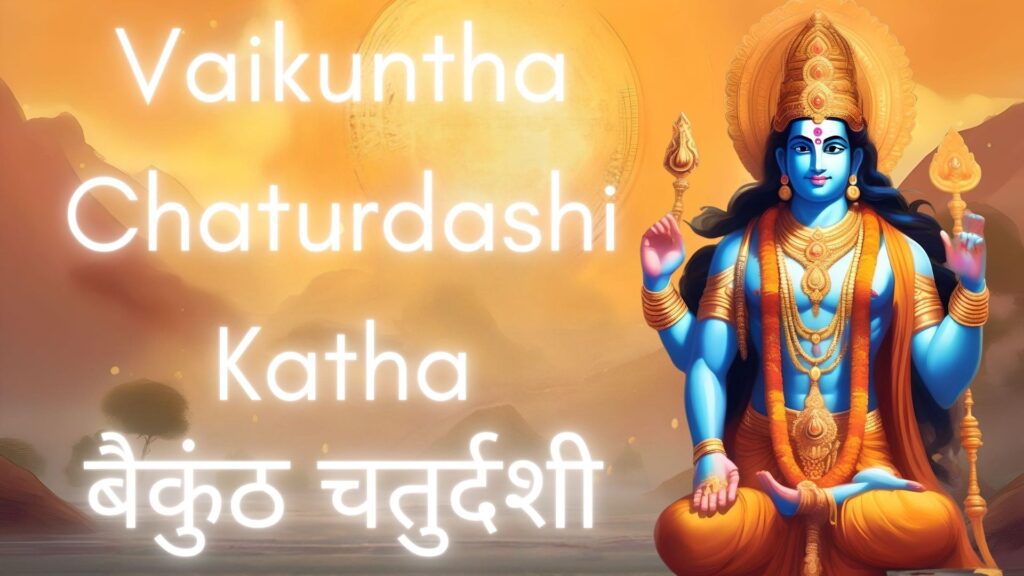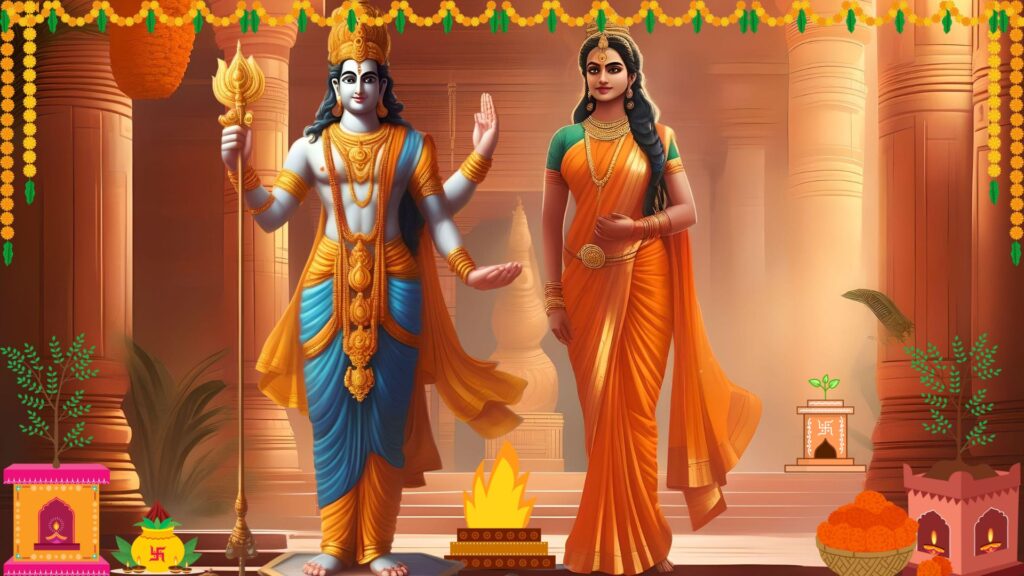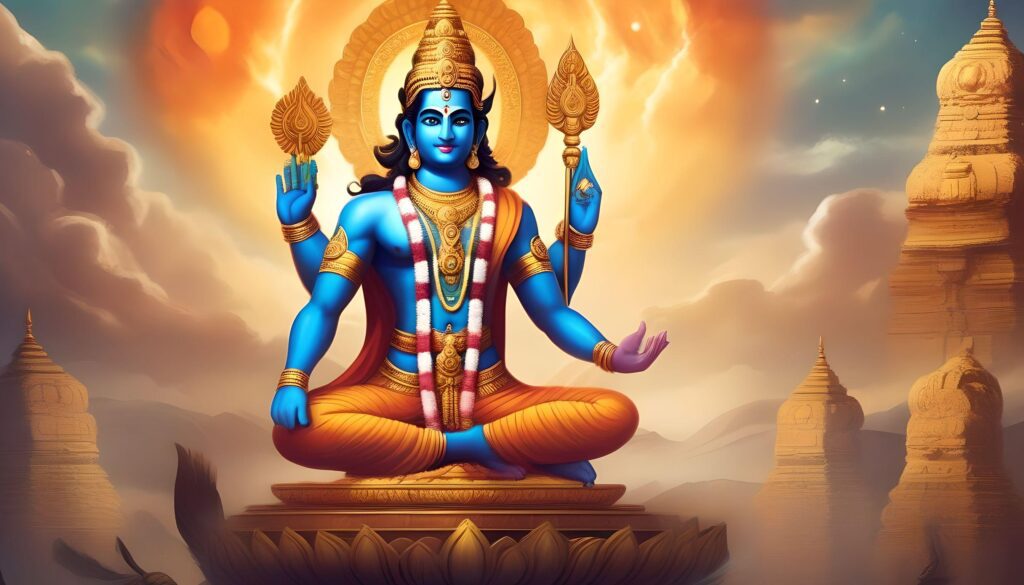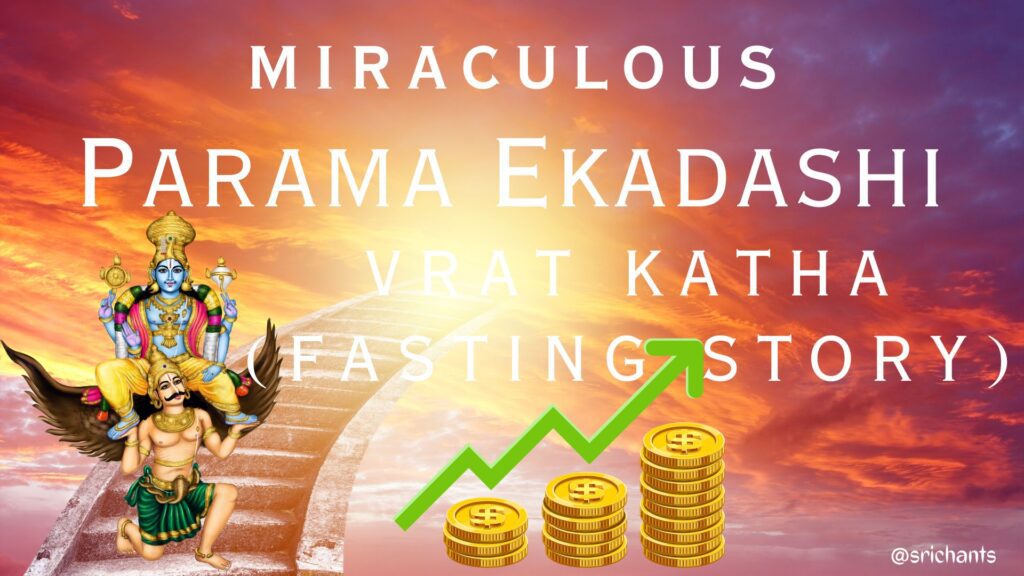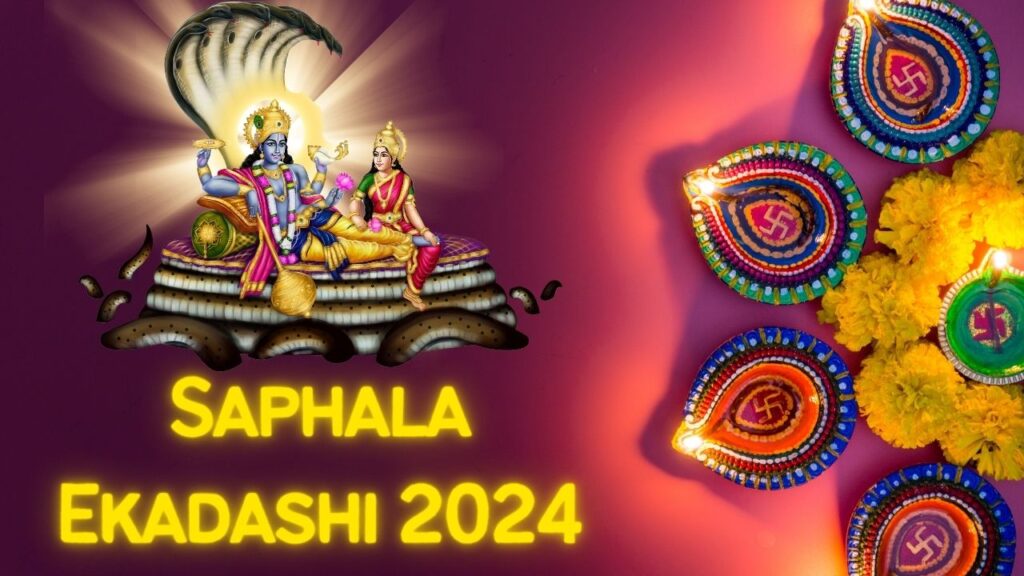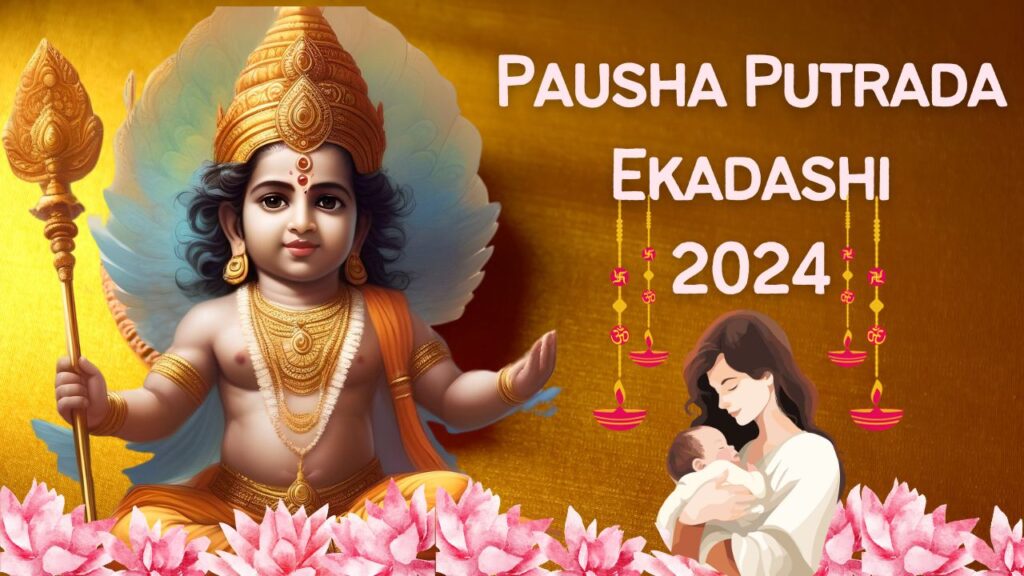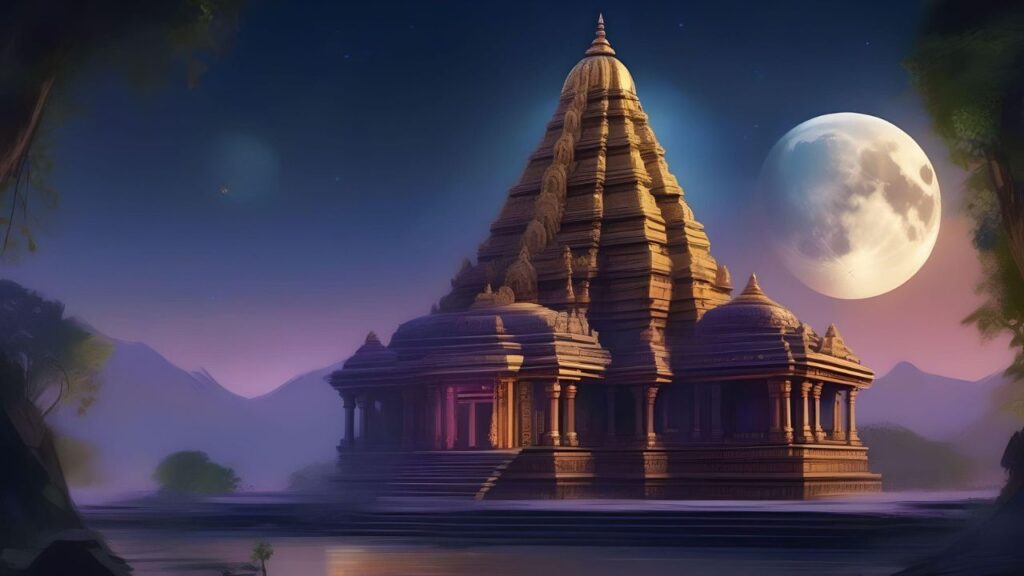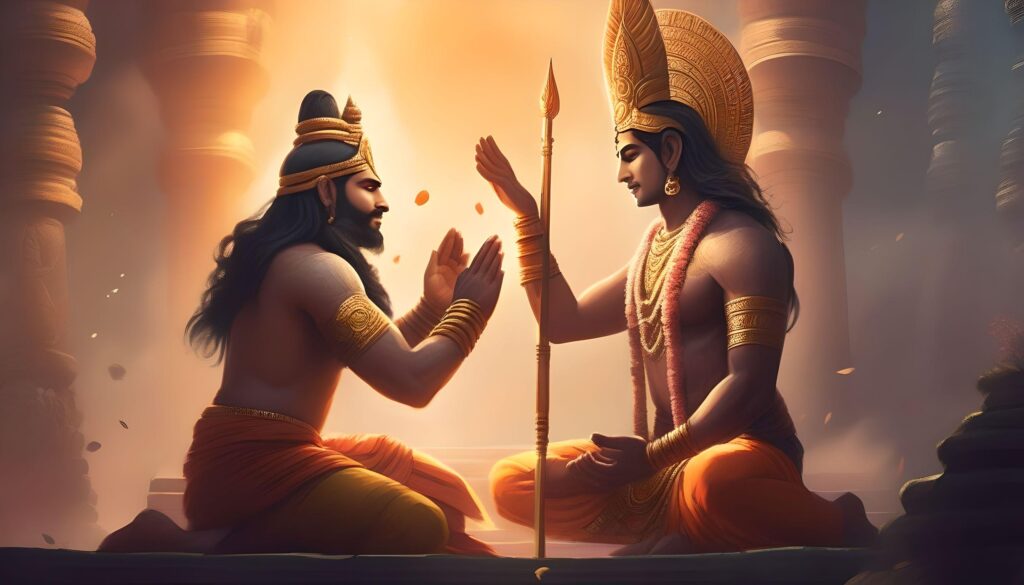Vishnu Puranam : Unraveling the Ancient Wisdom
Introduction
The profound cultural legacy of Hinduism is solidly established in its antiquated scriptures, which offer profound understandings of mythological narratives, historical occurrences, and spiritual doctrines. When considering these texts, the Vishnu Purana occupies a prominent position. It is a prominent among the 18 Puranas in Hinduism and provides an exhaustive narrative on the nature of Lord Shri Krishna and other celestial beings. This article will undertake an in-depth analysis of the Vishnu Purana, encompassing its historical roots, fundamental doctrines, and present-day significance.
The Essence of Puranas
Before delving into the particulars of the Vishnu Purana, it is essential to define the term “Puranas.” The Puranas, an antiquated form of Indian literature, comprise an extensive collection of subjects such as mythological annals, conventional wisdom, lineages of heroes and monarchs, astronomy, temples, and sages. Adherents of Hinduism profoundly venerate these texts on account of their sacrosanct nature. The term “Purana” possesses an inherent sense of antiquity, emblematic of the timeless nature and sagacity that these scriptures embody.
Within the Hindu tradition, there are eighteen Maha (great) Puranas, each of which delves into distinct facets of spiritual teachings, historical occurrences, and divine entities. The Vishnu Purana is widely regarded as a seminal Purana, providing profound insights into the teachings and life of Lord Vishnu, who is revered as the guardian and preserver of the universe. As we commence our exploration of the Vishnu Purana, may its profound wisdom be revealed.
The Origin of Lord Vishnu
As per the ancient scriptures, Lord Vishnu is revered as the universe’s creator and sustainer. He is held in high esteem as a member of the Trimurti, which also includes the destructor Shiva and the creator Brahma. A captivating account of the origin of Lord Vishnu can be found in the Vishnu Purana.
According to the Purana, the progenitors of Lord Vishnu were the goddess Durga and Kaal (Jyoti Niranjan). Although he is not immortal, he is subject to the cycle of life and death and is born again. During a dialogue between Lord Vishnu and Goddess Durga, Vishnu lauds the goddess’s eternal essence, remarking, “You are pristine. The reason this entire universe exists is due to your efforts. The existence of Brahma, Vishnu, and Shiva is due to your grace. “While humans experience the transient nature of life and death, you, the creator of this universe, remain eternal.” This excerpt underscores the profound correlation that exists between Lord Vishnu and Goddess Durga, the embodiment of sacred feminine energy.
The Divine Blue Hue of Lord Vishnu
A characteristic that sets Lord Vishnu apart is the hue of his complexion. The Vishnu Purana provides an explanation for the rationale underlying this distinctive characteristic. As per the Purana, Lord Vishnu was poisoned by Sheshnaag, the serpent monarch, during one of their encounters; the effect was a blueing of Vishnu’s skin. This occurrence is frequently attributed to the divine blue coloration that is linked to Lord Vishnu.
The Many Names of Lord Vishnu
A multitude of appellations are bestowed upon Lord Vishnu, each of which symbolizes a distinct facet of his divine nature. Adinath, Adishesh, Akshaj, Ameyatma, Amritya, Chakradhar, Chaturbhuj, Dashavatara, Gadhadhar, Narayana, Kamalakar, Harinarayan, Jagannath, Keshav, Lakshmipati, Liladhar, Madhav, Namdev, Narasimha, and Ram are a few of the well-known appellations affixed to Lord Vishnu. The aforementioned names succinctly represent the diverse facets of Lord Vishnu and the numerous functions he fulfills within the cosmos.
The Avatars of Lord Vishnu
It is believed that Lord Vishnu assumed multiple incarnations on Earth with the purpose of restoring equilibrium and maintaining righteousness. These celestial bodies, referred to as avatars, fulfill distinct functions and offer counsel to the human race. Twenty-three manifestations of Lord Vishnu are mentioned in the Vishnu Purana; the 24th, Kalki, has not yet materialized. Varah (the boar), Narad (the divine sage), Nar-Narayan, Kapil Muni, Dattatrey, Matsya (the fish), Kurma (the tortoise), Vamana (the dwarf), Parashuram, Rama, Krishna, and Buddha are some of the well-known avatars. These avatars exemplify the multifarious manners in which Lord Vishnu assumes the form of an advisor to humanity throughout various epochs.
The Significance of Vishnu Purana
Vishnu Purana occupies a unique position among the 18 Puranas on account of its comprehensive examination of diverse facets of Hinduism. This Purana, authored by Parashar Rishi, contains detailed descriptions of astrology, rituals, geography, the dynasty of Lord Krishna, and much more. This doctrine underscores the significance of both devotion and knowledge, providing guidance to individuals in their quest for spiritual enlightenment.
Although primarily concerned with Vishnu, the Vishnu Purana recognizes the importance attributed to Lord Shiva. Indeed, Lord Krishna explicitly affirms their inseparability from Shiva, asserting, “I impart to all that you (Shiva) have bestowed upon me.” There is no additional truth that is pertinent to this matter.” This excerpt emphasizes the profound interdependence and complementarity of Lord Vishnu and Lord Shiva within the cosmic hierarchy.
The Teachings of Vishnu Purana
The Vishnu Purana provides profound teachings that continue to hold relevance in the present era. It underscores the significance of human life, asserting that it is regarded as the preeminent form of existence. The Purana advocates for the liberation from the deceptive allure of materialistic gratifications and the prioritization of spiritual advancement. It advocates for the adherence to “Nishkam Karma” (selfless action) and “Gyan Marga” (the path of knowledge), encouraging people to carry out their responsibilities in pursuit of spiritual enlightenment.
The Purana further underscores the importance of conscientiously carrying out one’s responsibilities. It acknowledges the significance of diverse societal roles and asserts that women achieve salvation by serving and supporting their spouses wholeheartedly, without the need for participation in supplementary rituals or practices. In a similar vein, members of the Shudra caste have the potential to achieve equivalent rewards to Brahmins who engage in various rituals and austerities, provided they diligently carry out their responsibilities.
The Eternal Wisdom of Vishnu Purana
The Vishnu Purana is a repository of eternal knowledge, offering profound understandings regarding the celestial bodies, the universe itself, and the divine entities that control them. It provides a comprehensive comprehension of the planetary structure and the interdependence of all entities. In addition, the Purana underscores the significance of devotion, specifying that authentic worship constitutes a boon that culminates in deliverance.
The Relevance of Vishnu Purana Today
Aspirants persist in following the guidance of the Vishnu Purana throughout their contemporary spiritual quests. By highlighting the transient quality of worldly delights, the Purana encourages readers to pursue greater truths. It imparts the values of unity, righteousness, and compassion, which in turn facilitates the attainment of spiritual liberation.
Exploring Vishnu Purana: A Journey Within
In the culmination of our examination of the Vishnu Purana, we extend an invitation to embark upon an individual voyage of self-discovery. Explore the profound depths of this revered scripture, become engrossed in its enduring wisdom, and permit its teachings to shed light on your journey. Vishnu Purana’s profound insights ought to motivate you to live a life founded upon virtuousness, devotion, and spiritual enlightenment.

